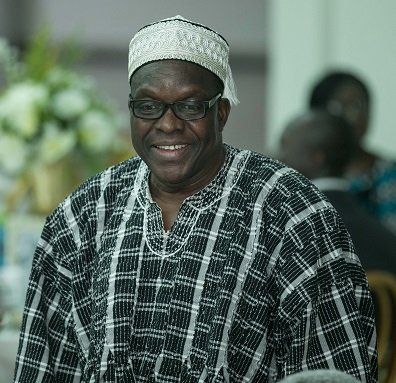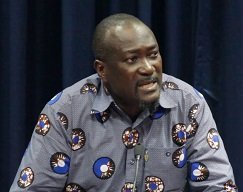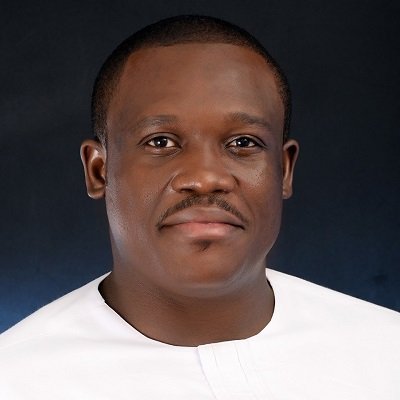Features
Ghana: Homosexuals becoming ‘endangered species’?

Just last Monday night, 18th October, 2021, two suspected Lesbian, Gay, Bisexual, Transgender, Queer and Intersex (LGBTQI+) practitioners were reportedly beaten to death in Tamale when they were “caught red-handed in the act.”
Reportedly, the angry mob who allegedly lynched the two suspected LGBTQI+ practitioners also severely assaulted two other suspects who were later “carried” to the police station by sympathetic eye-witnesses.
The four suspected LGBTQI+ practitioners were allegedly “caught in the act” behind the offices of GBC-Radio Savannah in Tamale.

Kwasi Prempeh, CDD
(anti- ‘HOMO BILL’)

of the ‘HOMO BILL’)
Reportedly, the “acts” of the four suspects, all male, attracted some Volta River Authority (VRA) workers in the area, who raised an alarm, thus, attracting a huge crowd to the scene.
The four LGBTQI+ suspects were said to be stark-naked and ‘doing their own thing’ in an uncompleted building when they were stumbled upon by the VRA staff who were working behind the offices of GBC-Radio Savannah.
Reporting the incident on Rainbow FM (87.5) , Prince Kwame Tamakloe said that the Crime Officer at the police station, Deputy Superintendent of Police (DSP) Prosper Ananga, confirmed the story and advised residents in Tamale to desist from taking the law into their own hands.
He said, DSP Ananga, however, lamented that the activities of homosexuals had increased in the area.
Readers, taking a cue from what has just happened in Tamale and juxtaposing it with the raging national conversation on Ghana’s ‘Homosexual Bill’ currently before Parliament; can one comfortably predict that when the bill is passed into law, Ghana will be better-off?
The national debate on the ‘HOMO BILL’ is heating up . The Bill is yet to be passed. And already, two suspected homosexuals have been ‘sacrificed’ on the altar of ‘indecency’ and ‘tradition’. And the other two ‘lucky’ suspects are ‘licking their wounds in hell.’
The ‘HOMO BILL’ before Parliament is titled: Promotion of Proper Human Sexual Rights and Ghana’s Family Values Bill, 2021. And it prescribes stiffer punishment against homosexuality in the country.
The ‘HOMO BILL’ proscribes dissemination of ideas, images, and symbols of any kind that promotes homosexuality and prohibits support by an individual or organisation for a homosexual group in Ghana.
Eight Members of Parliament introduced the ‘HOMO BILL’ in Parliament in August 2021. The Bill imposes between five and 10 years imprisonment for violations.
Homosexual conduct is already criminalised by Ghana’s existing criminal laws.
Section 104 (1) (b) of Ghana’s Criminal Offences Act, 1960 (Act 29) abhors consensual same-sex intercourse and prohibits it.
Indeed, the only mode of sexual intercourse which does not offend Ghanaian law, is sexual intercourse through the vagina by penal penetration.
Really, currently, many Ghanaians strongly believe that the ‘HOMO BILL’ must be passed to strengthen the existing laws, so as to halt the emerging ‘modern colonisation’ of Africa via ‘rotten’ homosexual behaviours.
What then is homosexuality? It is a romantic attraction or sexual behaviour between members of same-sex or gender.
As a matter of fact, there exists a very strong opposition against the emerging LGBTQI+ community in Ghana. They include some religious institutions, traditional rulers and teacher unions. They strongly argue that homosexuality is not a RIGHTS issue and, therefore, support the ‘HOMO BILL’ in Parliament.
Just about 20 Ghanaian intellectuals and professionals are, however, vigorously expressing their disapproval of the Bill.
They contend that some of the provisions of the ‘HOMO BILL’ violate Ghana’s 1992 Constitution; particularly the chapter on Human Rights as spelt out in the Constitution.
An Afrobarometer survey conducted in 2014, however, indicated that over 90 per cent of Ghanaians are vehemently against homosexuality. And the outcome of the survey endorses the general belief of many Ghanaians about the nation’s family values.
“I dare say that in Ghana, any chief who gives shelter to any homosexual in any community, will be destooled without any notice,” a linquist who wants to remain anonymous, he said.
According to the linquist: “Ghanaian traditional gods strongly believe in ‘life’ and ‘procreation’, ” adding that “the gods vehemently abhor sexual activities of homosexuals; to the extent that it is a curse for homosexuals to be flaunting their activities on our sacred space.”
Joshua Ashun-Aikins, a political science student of the University of Cape Coast also says; “any political party in Ghana which will make a mistake by just promising to legalise the activities of LGBTQI+ in the country, will consign itself straight to the grave.
“Because Ghanaians will surely not vote for that political party to win power. Instead, the party will be mocked and tagged, ‘trumu-trumu’ party.”
Around the world, for instance, the legal status of polygamy, which is commonly practised in Africa, varies. Some countries outlaw, accept or encourage polygamy.
So, in the same way, homosexuality and same-sex behaviours may be outlawed, accepted or encouraged by certain countries across the globe.
From the foregoing, therefore, would the passage of the ‘HOMO BILL’ into law, strengthen the hands of its proponents to ‘terrorise’ homosexuals in the country? Or would such a law rather encourage homosexuals to tilt towards ‘ proper human and sexual rights’ and guide them to practise Ghana’s family values?
Readers, over to you now!!!
Contact email/ WhatsApp of author:
asmahfrankg@gmail.com (0505556179)
By G. Frank Asamah
Features
Traditional values an option for anti-corruption drive — (Part 1)
One of the issues we have been grappling with as a nation is corruption, and it has had such a devastating effect on our national development. I have been convinced that until morality becomes the foundation upon which our governance system is built, we can never go forward as a nation.
Our traditional practices, which have shaped our cultural beliefs, have always espoused values that have kept us along the straight and the narrow and have preserved our societies since ancient times.
These are values that frown on negative habits like stealing, cheating, greediness, selfishness, etc. Our grandparents have told us stories of societies where stealing was regarded as so shameful that offenders, when caught, have on a number of instances committed suicide.
In fact, my mother told me of a story where a man who was living in the same village as her mother (my grandmother), after having been caught stealing a neighbour’s cockerel, out of shame committed suicide on a mango tree. Those were the days that shameful acts were an abomination.
Tegare worship, a traditional spiritual worship during which the spirit possesses the Tegare Priest and begins to reveal secrets, was one of the means by which the society upheld African values in the days of my grandmother and the early childhood days of my mother.
Those were the days when the fear of being killed by Tegare prevented people from engaging in anti-social vices. These days, people sleeping with other people’s wives are not uncommon.
These wrongful behaviour was not countenanced at all by Tegare. One was likely going to lose his life on days that Tegare operates, and so unhealthy habits like coveting your neighbour’s wife was a taboo.
Stealing of other people’s farm produce, for instance, could mean certain death or incapacitation of the whole or part of the body in the full glare of everybody. People realised that there were consequences for wrongdoing, and this went a long way to motivate the society to adhere to right values.
Imagine a President being sworn into office and whoever administers the oath says, “Please say this after me: I, Mr. …., do solemnly swear by God, the spirits of my ancestors and the spirits ruling in Ghana, that should I engage in corrupt acts, may I and my family become crippled, may madness become entrenched in my family, may incurable sicknesses and diseases be my portion and that of my family, both immediate and extended.”
Can you imagine a situation where a few weeks afterwards the President goes to engage in corrupt acts and we hear of his sudden demise or incapacitation and confessing that he engaged in corrupt acts before passing or before the incapacitation—and the effect it will have on his successor? I believe we have to critically examine this option to curb corruption.
My grandmother gave me an eyewitness account of one such encounter where a woman died instantly after the Tegare Priest had revealed a wrong attitude she had displayed during the performance on one of the days scheduled for Tegare spirit manifestation.
According to her story, the Priest, after he had been possessed by the spirit, declared that for what the woman had done, he would not forgive her and that he would kill. Instantly, according to my grandmother, the lady fell down suddenly and she died—just like what happened to Ananias and his wife Sapphira in Acts Chapter 5.
NB: ‘CHANGE KOTOKA INTERNATIONAL AIRPORT TO KOFI BAAKO
By Laud Kissi-Mensah
Join our WhatsApp Channel now!
https://whatsapp.com/channel/0029VbBElzjInlqHhl1aTU27
Features
Emotional distortions:A lethal threat to mental health
Emotional distortions can indeed have a profound impact on an individual’s mental health and well-being. These distortions can lead to a range of negative consequences, including anxiety, depression, and impaired relationships.
Emotional surgery is a therapeutic approach that aims to address and heal emotional wounds, traumas, and blockages. This approach recognises that emotional pain can have a profound impact on an individual’s quality of life and seeks to provide a comprehensive and compassionate approach to healing.
How emotional surgery can help
Emotional surgery can help individuals:
Identify and challenge negative thought patterns: By becoming aware of emotional distortions, individuals can learn to challenge and reframe negative thoughts.
Develop greater emotional resilience: Emotional surgery can help individuals develop the skills and strategies needed to manage their emotions and respond to challenging situations.
Improve relationships: By addressing emotional wounds and promoting emotional well-being, individuals can develop more positive and healthy relationships with others.
The benefits of emotional surgery
The benefits of emotional surgery can include:
Improved mental health outcomes: Emotional surgery can help individuals reduce symptoms of anxiety and depression.
Enhanced relationships: Emotional surgery can help individuals develop more positive and healthy relationships with others.
Increased self-awareness: Emotional surgery can help individuals develop a deeper understanding of themselves and their emotions.
A path towards healing
Emotional surgery offers a promising approach to addressing emotional distortions and promoting emotional well-being. By acknowledging the impact of emotional pain and seeking to provide a comprehensive and compassionate approach to healing, individuals can take the first step towards recovery and improved mental health.
Join our WhatsApp Channel now!
https://whatsapp.com/channel/0029VbBElzjInlqHhl1aTU27
BY ROBERT EKOW GRIMMOND-THOMPSON






